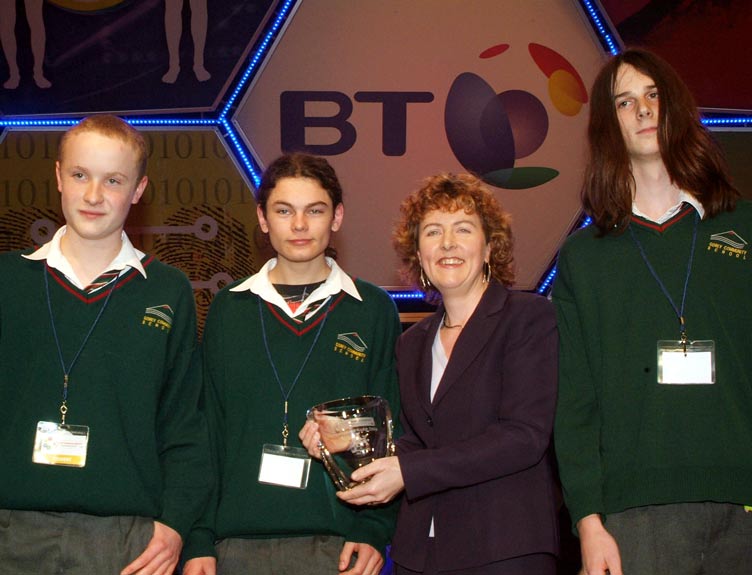Playing music in doctors' waiting rooms may help to reduce hypertension

The choice of music played in doctors' waiting rooms can have an effect on a patient’s blood pressure, according to three students from Gorey Community School in Wexford.
The Transition Year students received a special award, sponsored by RCSI at the 2006 BT Young Scientist Exhibition.
Eoin Roche, Daniel Dunbar and Peter Laurent won the RCSI award for the best ‘Biomedical Science or Health Related Project’ with 'The effects of music on white coat syndrome'.
White coat syndrome is a medically recognised condition which results in a higher than usual blood pressure measurement on visiting a doctor. It is believed that this is down to general nervousness at being tested.
“Approximately 30% of the population is believed to suffer from the syndrome. The rise in blood pressure while waiting for the doctor may result in unnecessary medication being administered as a result,” said Daniel Dunbar.
Using 80 test subjects in total and recording the effect of a different range of songs on a person’s blood pressure, the students found that some music raises blood pressure while other music has a lowering effect. According to the study age and gender can make a significant difference.
For example, it found that females react totally differently to certain types of music than males. The study recommends that doctors 'should play music in their waiting room and surgery', however, they should pay attention to the possible effects of their choice of music. It also advises medics to take circumstances and gender into account when measuring a patient’s blood pressure. The authors of the study noted that they only tested people between the ages of 15-17 and that younger or older people would 'no doubt react differently'.
Describing how they came up with the theme for the project, Eoin Roche explained: “We wanted to do something with music and how it affects emotion. We considered that physiological responses were easier to measure than emotional ones so we decided to measure the effect of music on blood pressure.”
Eoin’s classmate Peter Laurent added that they were “overwhelmed” at being awarded the prize.
Established in 1964, the BT Young Scientist Exhibition is now in its 42nd year. 2006 has seen the greatest number of entry applications, with over 1,100 projects being submitted by students throughout Ireland. As a centre for world-class research and education, this is the third year that the RCSI has sponsored a special award at the exhibition.



